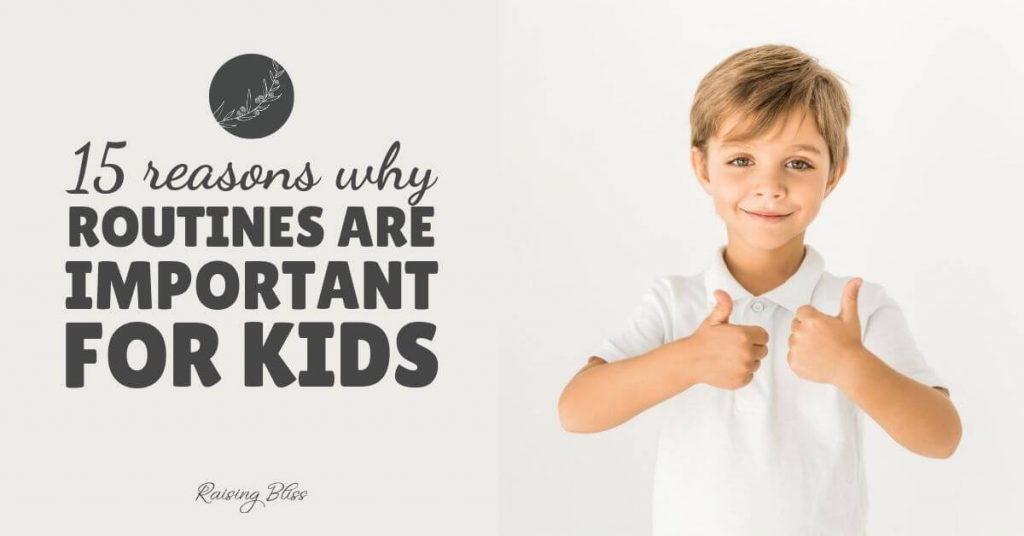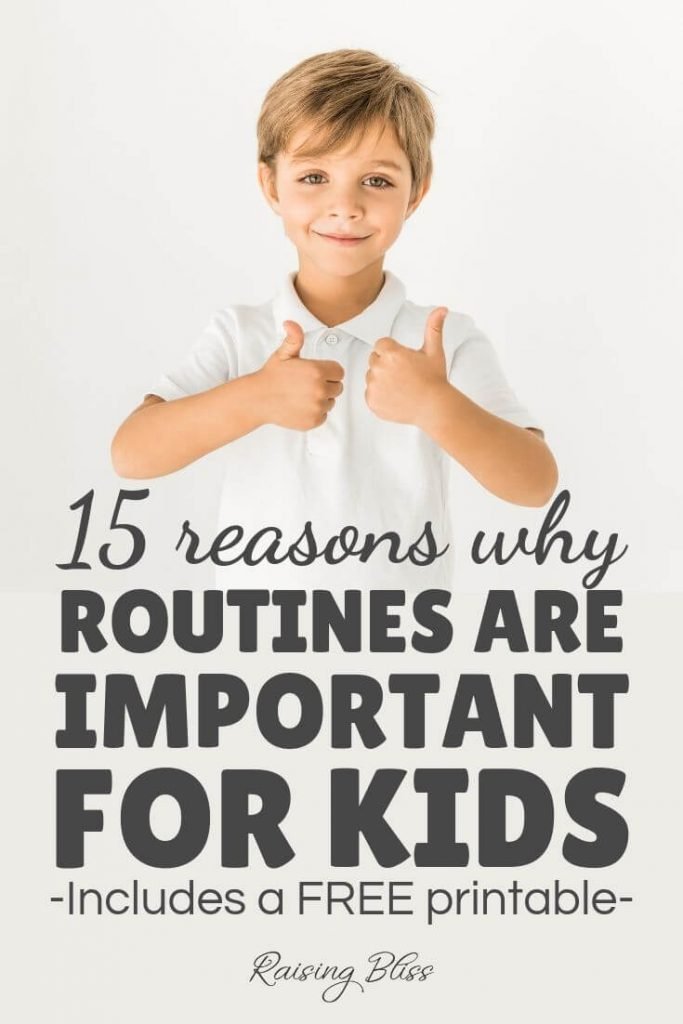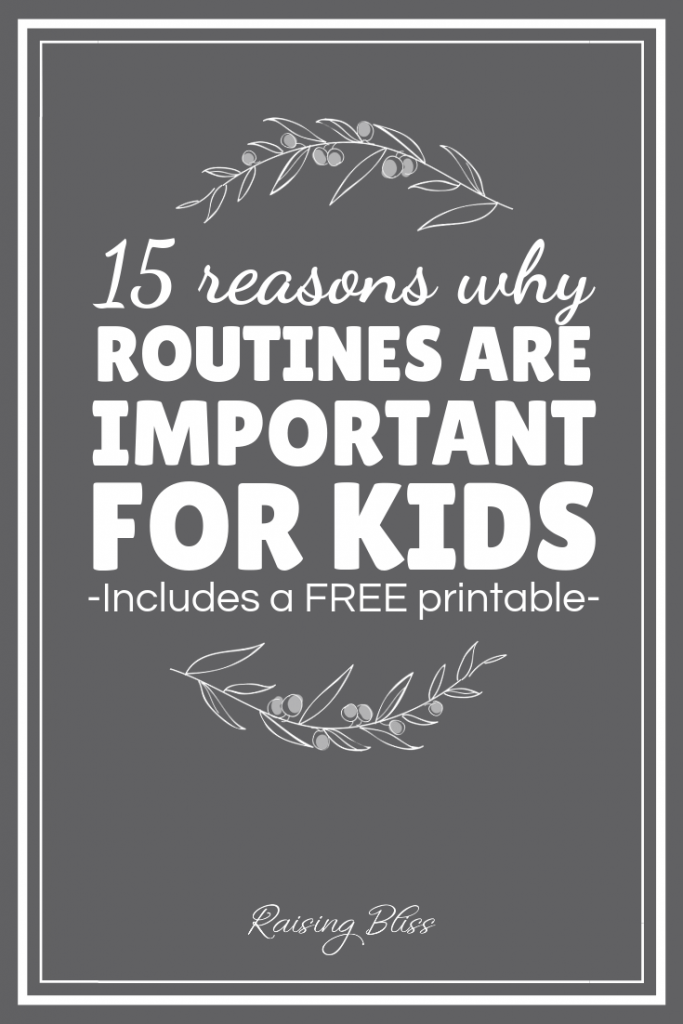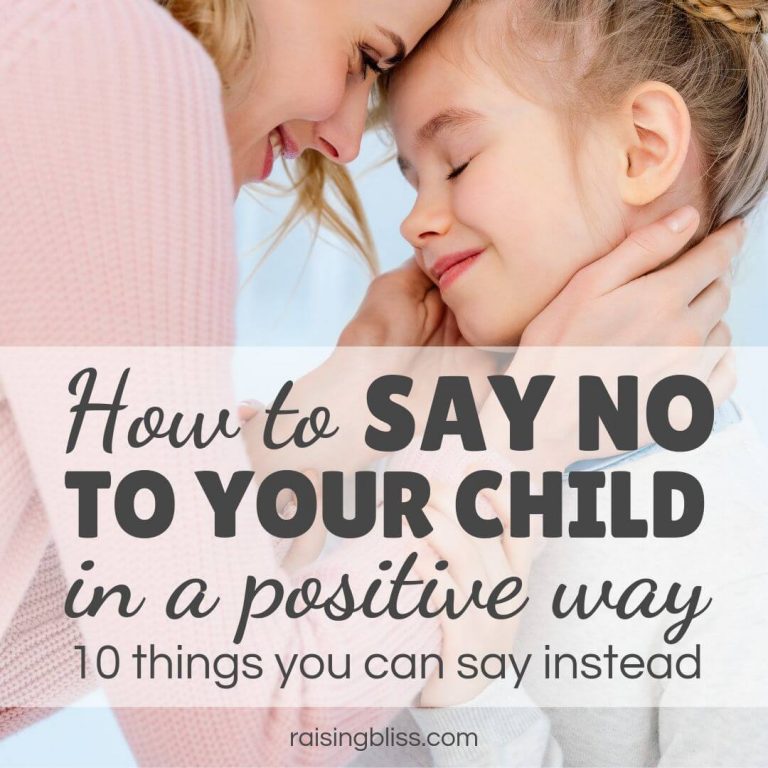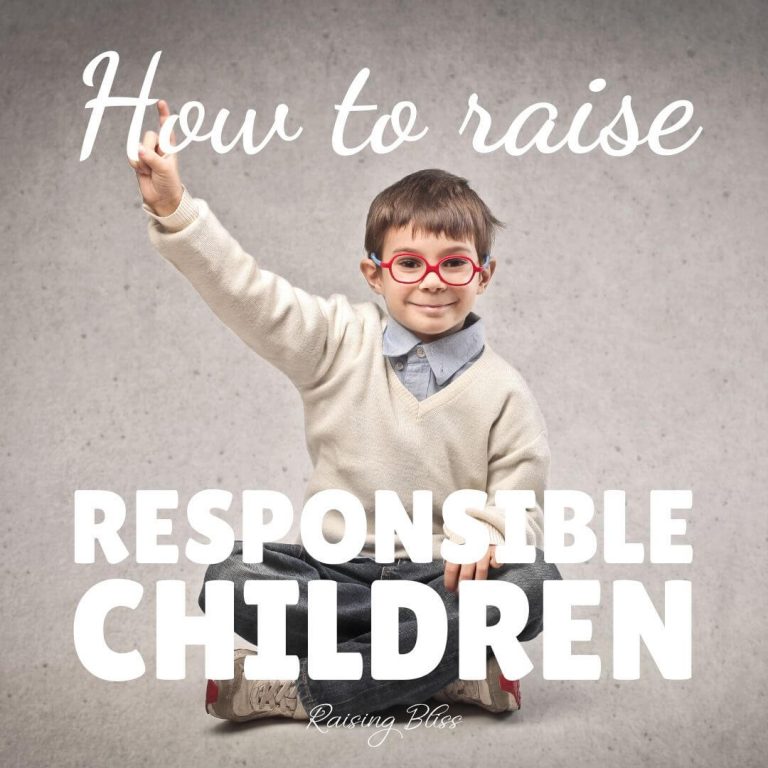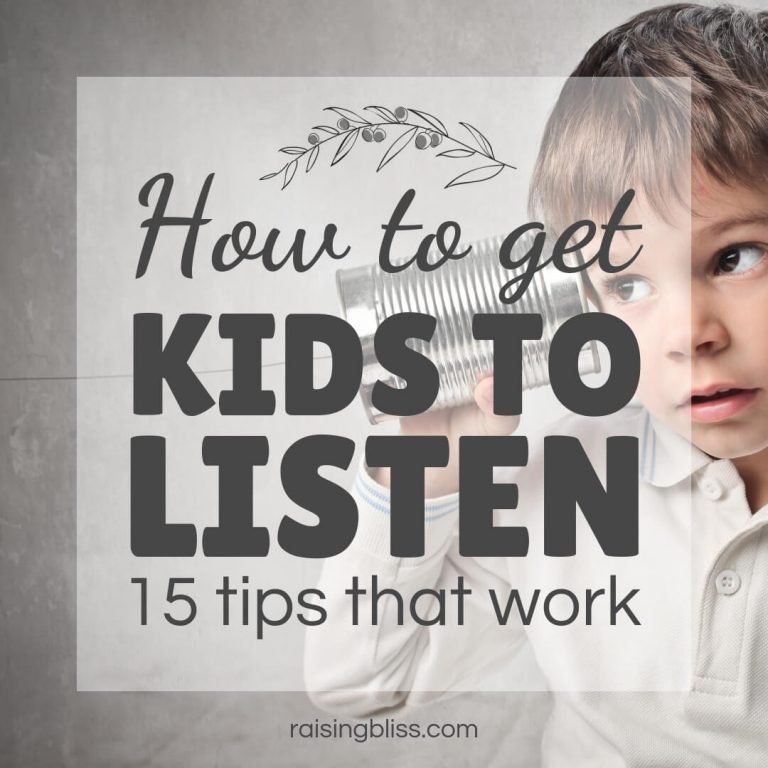15 Reasons Why Routines are Important for Kids
Inside: Why routines are important for kids and how to implement them.
The words schedule and routines evoke two different types of feeling. The A-type, organized mom feels like it’s her cup of tea. The free-spirited, spontaneous mom wants to run far, far away. But no matter how we may feel about schedules, there are many reasons kids need routines.
Imagine yourself walking through a city. You’re looking around, enjoying the sights. A new Honda Odyssey just drove by, and you noted that you liked the soft gray color. You look up at the tall brick wall that displayed the work of art of a local spray paint artist. You smell something deliciously warm and slightly sweet with a note of cinnamon, you look around and notice a new German bakery just feet away with a “Grand Opening” sign above the front door.
Now imagine yourself walking through the same city, the same Honda driving by, the same brick wall nearby and the same bakery just feet away. Except you’re blindfolded. You can’t enjoy any of it. The sound of the driving cars scares you. You don’t know if you are safe, standing where you are. You begin walking, and you run into the pretty brick wall. And even though the smell from the bakery intrigues you, you don’t know where to go to find it.
Sure, there may be someone there to lead you through the chaos, but you’re not enjoying the walk because you don’t know what’s happening around you.
Kids without routines are the same. When they don’t know what’s happening and what to expect next, they’re scared, insecure, and emotional.
15 Reasons Why Routines are Important for Kids
Here’s what routines do for you and your kids, and why you need them.
1. create a sense of security
When kids know what to expect, they’re calmer, their emotions are more leveled out, and they tend to be more cooperative. For this reason, routines can also help with behavioral issues. Having established routines means having less stress, and less stress in the household is good for kids and adults alike.
2. teach kids organization
Routines are essentially an organization of the tasks and activities within a specific time period. In other words, routines organize time and tasks. Children who are introduced to routines early develop better organizational skills as they grow.
3. prevent power struggles
When kids get used to the routine, they learn what comes first, and what comes next. Routines make bedtime, mornings, and mealtimes easier for everyone involved.
4. foster INDEPENDENCE
When kids know what to do, mom doesn’t have to repeat “go brush your teeth” 15 times before they actually do it. Sure, kids need reminders, but when a task is a part of your routine, simply asking, “What comes next?” will often do the trick.
5. build confidence
When your child knows what he needs to do, and he does it all by himself, it builds self-reliance, independence, and confidence.
6. teach kids structure
Structure is what helps them become good citizens and contributors to their community.
7. help establish good habits
If reading a book to your toddler every evening before bedtime is part of your nighttime routine, she will grow to love reading. When your morning routine includes brushing teeth and hair and making the bed, your son will be more likely to do it when he moves into his dorm room at eighteen. Including all family members in dinner prep helps them grow up to be great partners to their spouses when it comes to household management. Having chores as part of your daily routine helps with this, too. Good habits are learned, and what better way to teach them than when kids are most receptive to learn. This is why routines are important for kids.
8. build efficiency
When making the bed is part of your child’s morning routine, it will be hard at first, especially if his little arms don’t reach all the way across the bedcover to smooth out the wrinkles. But with time and consistency, he will get better and better at making his bed all by himself.
9. help develop self-control
Routines build expectations, which helps kids develop the patience to wait for what they’re excited about.
10. foster responsible behavior
Routines help kids learn to become self-sufficient, responsible, and reliable.
11. offer stability
When daddy leaves on an unusually long business trip or when mommy comes home with a new baby, your child’s world can literally turn upside down. Routines will give him the familiarity and stability he so desperately needs when everything else around him is new and scary.
12. help build strong family bonds
Can you think of a happy memory from your childhood? Was it waking up to the smell of dad’s from scratch pancakes? Was it having dinner at grandma’s every Sunday evening? Or was it cuddling up with mom every evening while she read you a book and sang your favorite song? Routines foster strong family bonds and build memories.
13. prevent meltdowns
When kids have stability and know what to expect, they are less likely to feel insecure and unstable, and less likely to have tantrums.
14. Routines keep mom sane
When there are a million things to do every day and you spend half the day just trying to get your kids to do what you ask, it can get frustrating. If you’re tired of yelling at your kids to just do what you say, try implementing routines into your day.
15. they help GET MORE DONE
The simple reason for this is once established, routines save time, and that helps check more items off your to-do list, including self-care for mom.
Dos and Don’ts of routines
Do take baby steps when adding routines to your day. If you’re a “go with the flow” kind of mama and want to give routines a try, don’t implement all your ideas at once. Start with adding one routine to your day, and once both the little people and the adults have that one down, add another one. It will take some time to get the habits of the routine formed, and you don’t want to overwhelm your kids and create more stress for yourself by making over your whole day without easing into it.
Don’t be a drill sergeant. Being consistent with routines is important, but when there is an exciting temporary change in your life like taking a vacation or when out of state cousins come visit for a few days, be flexible. Don’t send your kids off to bed at 8 just because it’s a part of your routine. Have them enjoy the excitement a little longer, and enjoy it with them. But keep in mind, if you loosen up the flow of the routine, make sure you tell your kids what’s happening and why. “I will let you stay up one hour past your bedtime to play with your cousins, but when they leave tomorrow we’ll be back on our regular schedule.”
Don’t just move your kids through the daily schedule. Once you have a schedule, it’s easy to get carried away with being the usher of the kids and simply moving them along through the motions of the day. Don’t forget to leave room for flexibility, spontaneity, and surprises. Make sure you give yourself a chance to slow down to really take in the sweet people you’re raising. Slow down and enjoy your motherhood.
Do use a routine chart. When everyone is getting used to the new flow, having a routine chart is a good reminder of what comes next. You can use visuals for little kids who can’t read yet. Including pictures in your routine chart helps them independently look to see what they should be doing next or if they’ve missed a step.
The unknown is scary for adults and kids alike. Routines are important for kids because they help form security, stability, and structure. They teach kids to be self-reliant, patient, form good habits, and build strong family bonds.

